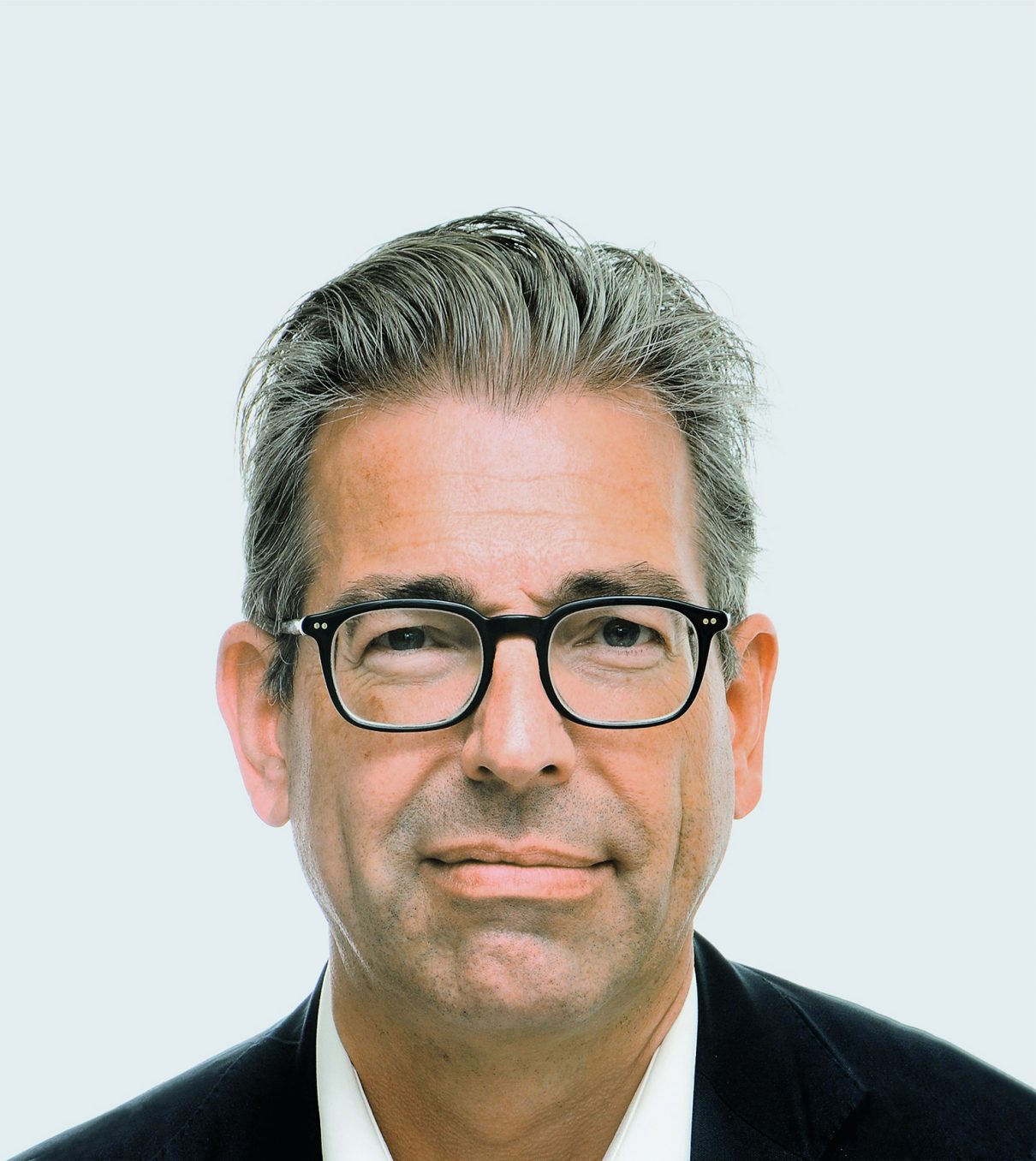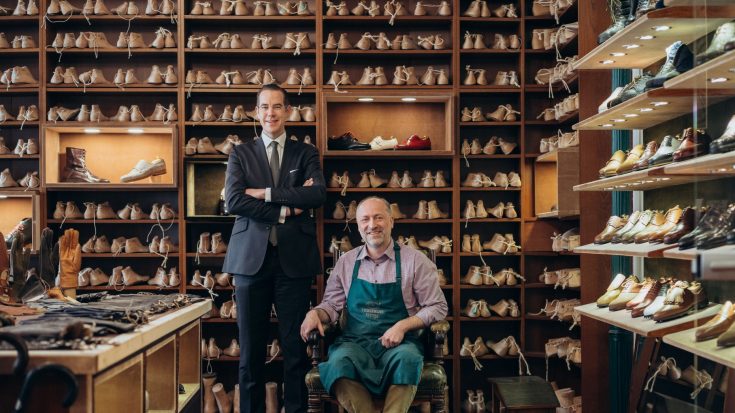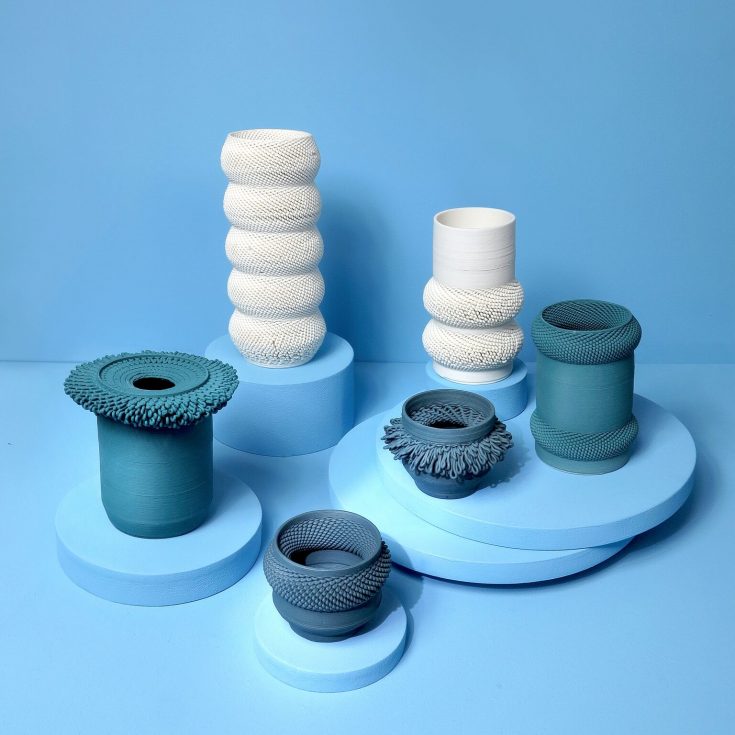Deutsche Werkstätten Hellerau has existed since 1898. How have the ‘Werkstätten’ managed to be so relevant to this day?
It was a great stroke of luck that Fritz Straub took over the Werkstätten after the fall of the Berlin Wall in 1992 and decided not to continue producing furniture here, but to focus on individual projects. The basis at that time was formed by the best carpenters of the GDR: the “special production department”. We started with public projects and became better and better. His slogan, his parable for life and success, was always the image of a ladder that you climb up and up. Suddenly the rungs break. One notices that one cannot go back. This is how we have developed: from public projects to individual contracts for private customers. Deutsche Werkstätten Hellerau brings craftsmanship and high-tech together.
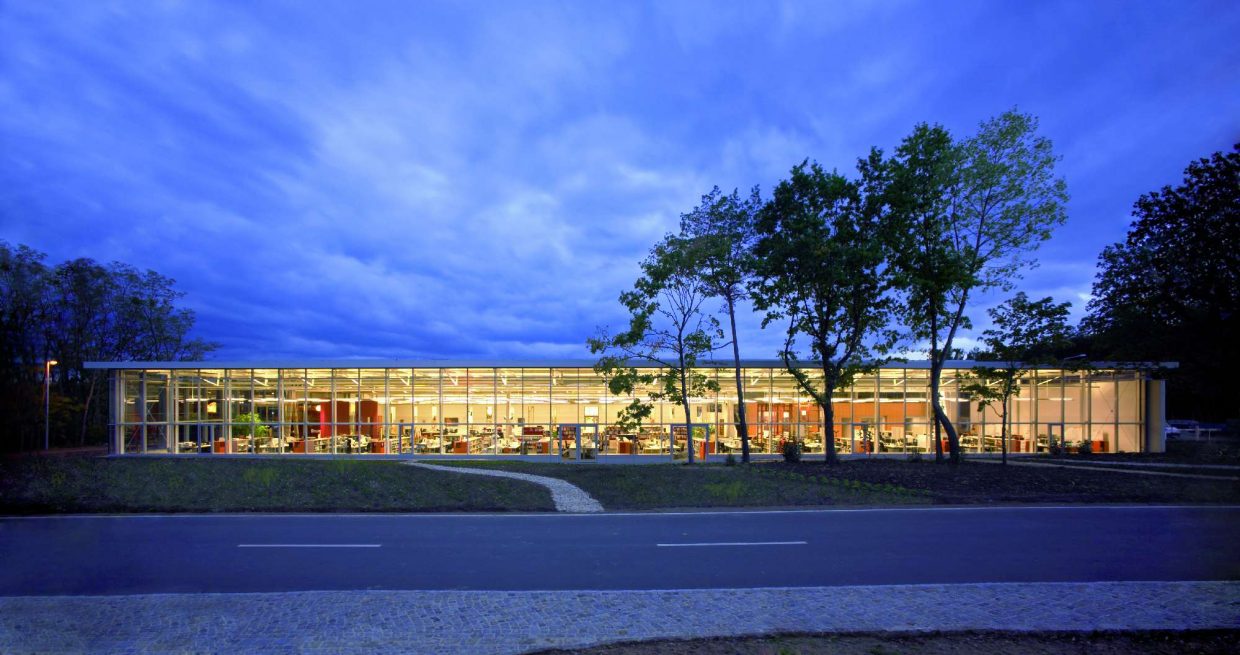
Like what?
We are not a backward-facing show manufactury where men with white beards work. What can be done with machines in carpentry, we do with machines. Where digitalization makes sense, we work digitally. Our average age in the company is 35 years. But we need both: experienced carpenters and young programmers. We have a very high percentage of masters who know how to handle wood, who can also guide colleagues who have been loyal to the company for many years. For this we need the younger colleagues who know how to build complex 3D constructions digitally. If you work on 6 to 8 highly complex projects simultaneously every year with a team of 300 employees, then you should know what you are doing.
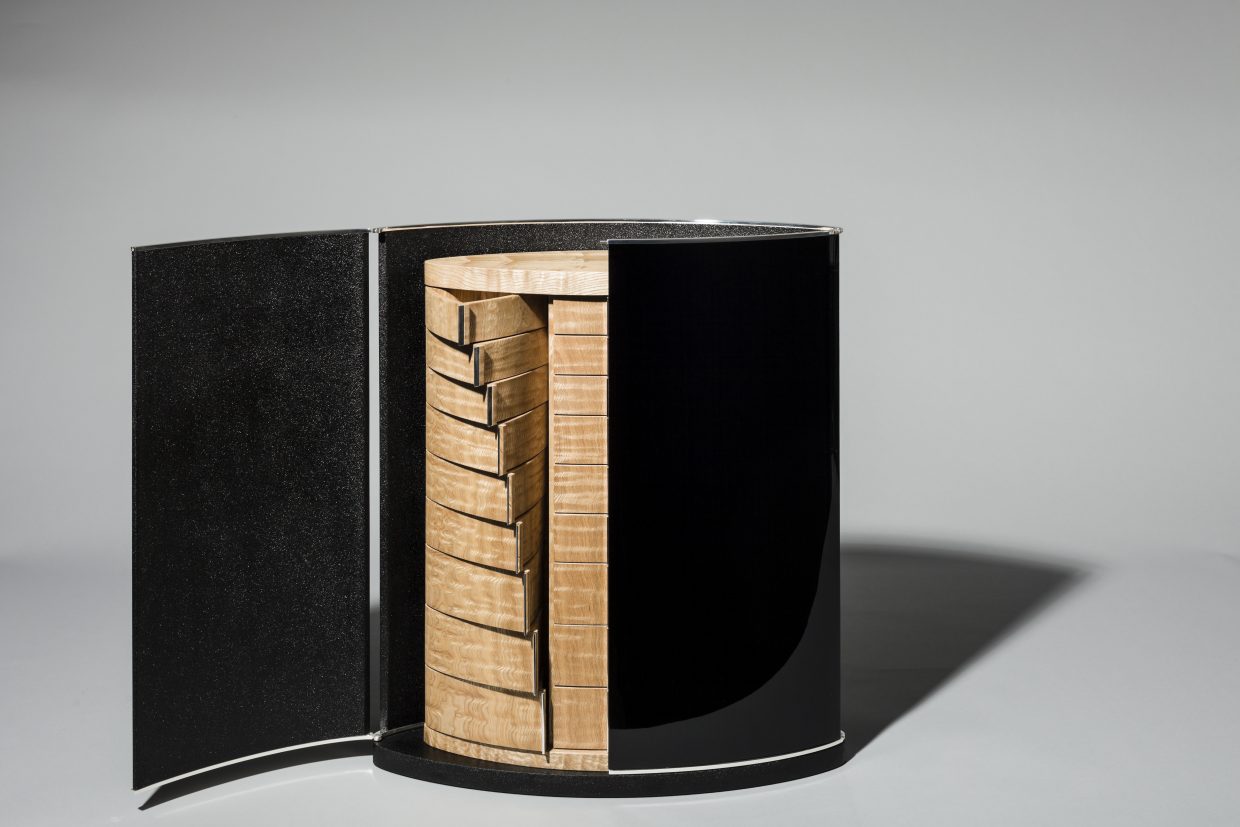
The Werkstätten are known above all for individual projects: Boat interior work, interior fittings, trains...
This project business is indeed very demanding, not only technically, but also in terms of manpower and profitability. We have project durations of two to three years in some cases. You have to keep the teams together — and at the same time react flexibly to the demands of business.
This could be especially difficult for younger employees, right?
It starts in the joinery, in production, with the journeymen. We also train 7 apprentices every year up to the apprenticeship within three years. This gives us 21 apprentices at any one time and a lot of exercise: Apprentices in our company become journeymen, many make their masters and then go on their travels, on the rollers. Others want to look at the world or study — there are many colourful ways of life. We are glad that many people are coming back, because it is crucial for us to be able to manage such a team of 300 employees. And we will continue to grow as we do so.

How do you manage that?
If we take engineering as an example: The graduates who come to us from universities such as Hildesheim or Rosenheim are not yet fully operational for our needs. So they go through a company training program. We are currently planning to establish our own academy, where we can train our employees on our Deutsche Werkstätten Campus. Interesting networks of companies from the region that are interested in sending their trainees to us are also currently being established here.
Let’s go a little beyond the horizon of the Deutsche Werkstätten Hellerau: Do you think that manufactories can play a special role within our economic structure? What can manufactories contribute “to a better world”?
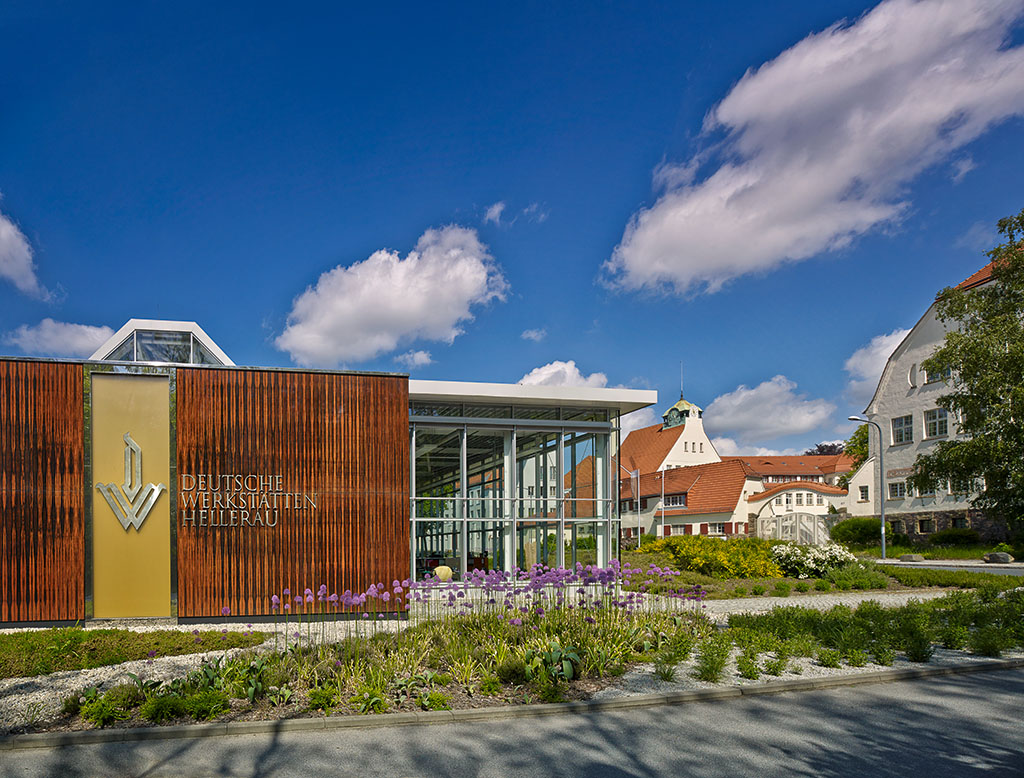
I am firmly convinced that manufactories can play a special role. For the following reason: I clearly see that our built environment and the entire material environment, everything we can see or touch, makes us better or worse people. An example: We once built a train, the Metropolitan Express Train (MET) for Deutsche Bahn in cooperation with gmp architects Gerkan, Marg und Partner. The aim was to design a first-class business train to get business frequent flyers out of the plane and onto the rails. This project was stopped after the construction of two trains, but the following was interesting: The two trains we have upgraded still run today and you can experience there how you can travel in really nice trains! The compartments are equipped with the finest pear wood, there are comfortable leather seats... I tell you, in such cars people don’t yell into their mobile phones or crumble everything full, they sit straight and talk in a civilized manner. This may sound exaggerated, but the environment also shapes our behaviour.
Not everything can be considered technically. Sometimes it’s also about creating (not measurable) atmospheres.
We also see our craft as a social responsibility. To deal with the beauty of experience, be it business or private, the family is the first step to be able to face the world in a differentiated way. The big theme “Food and Nutrition”, which has been en vogue for some years now, illustrates this very well: Grandmother’s food, with which memories are connected, time or love cannot be compared to the 10 minutes of fast food on a plastic tray. There are worlds in between. The same applies to other areas of life. We have to sensitize for this.
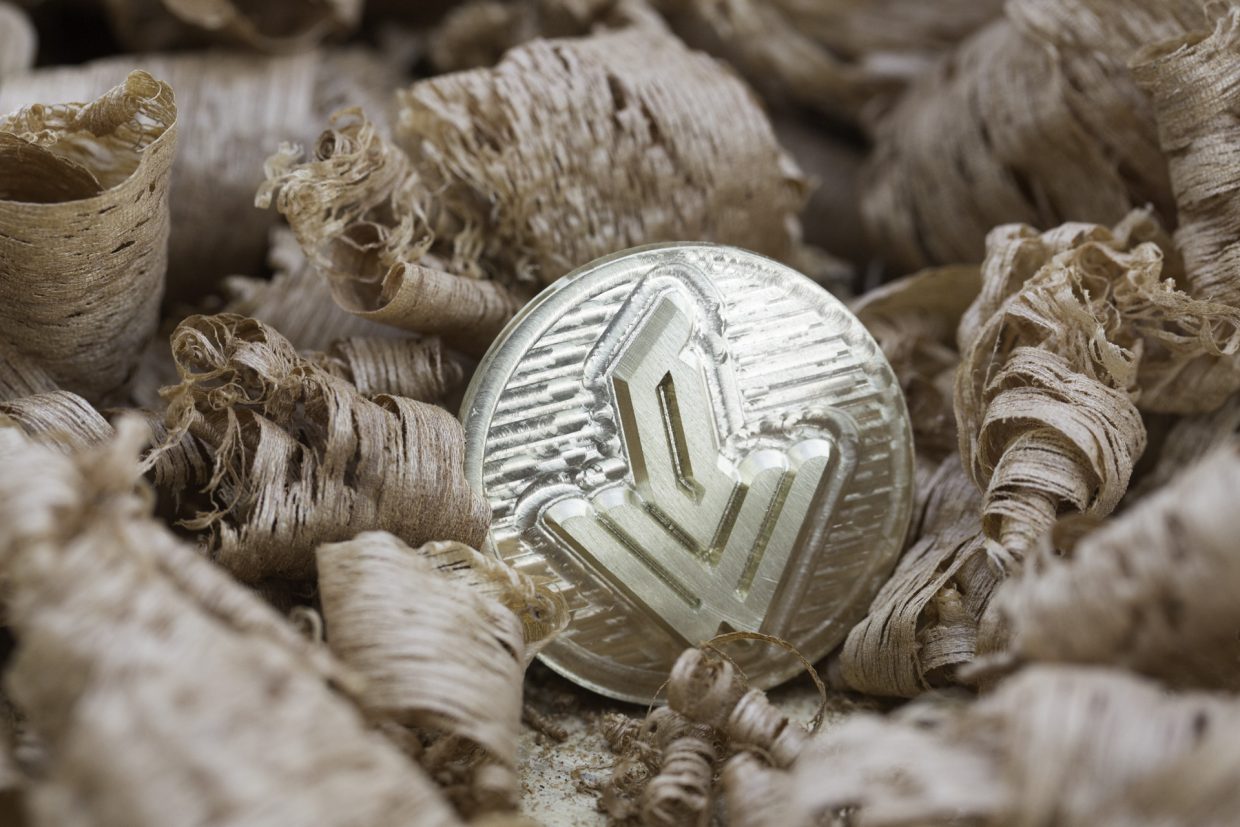
What role does your own furniture production actually play?
Our own furniture production is an old dream of ours, but we also realize that this is a completely different market. There are others who can do it better. We actually develop furniture, also in series, e.g. for the Hambach Castle, but these remain small series. Reproducing this is not really a business for us.
Which projects from the past did you remember because of their complexity?
Our most challenging projects indeed come from the yacht sector. Everything is possible here, and everything should be made possible. Designers and their clients are looking for unique, exotic materials, things you have never seen before. When natural materials are used, they are processed in a very special way. Veneers are bleached, dyed, salted, lacquered, etc. What happens if one of these panels breaks, can it be replaced in 5 years? These are technological questions that arise. Can sliding doors still move in heavy seas? Not without further ado, for this you have to develop and install motorised drives.
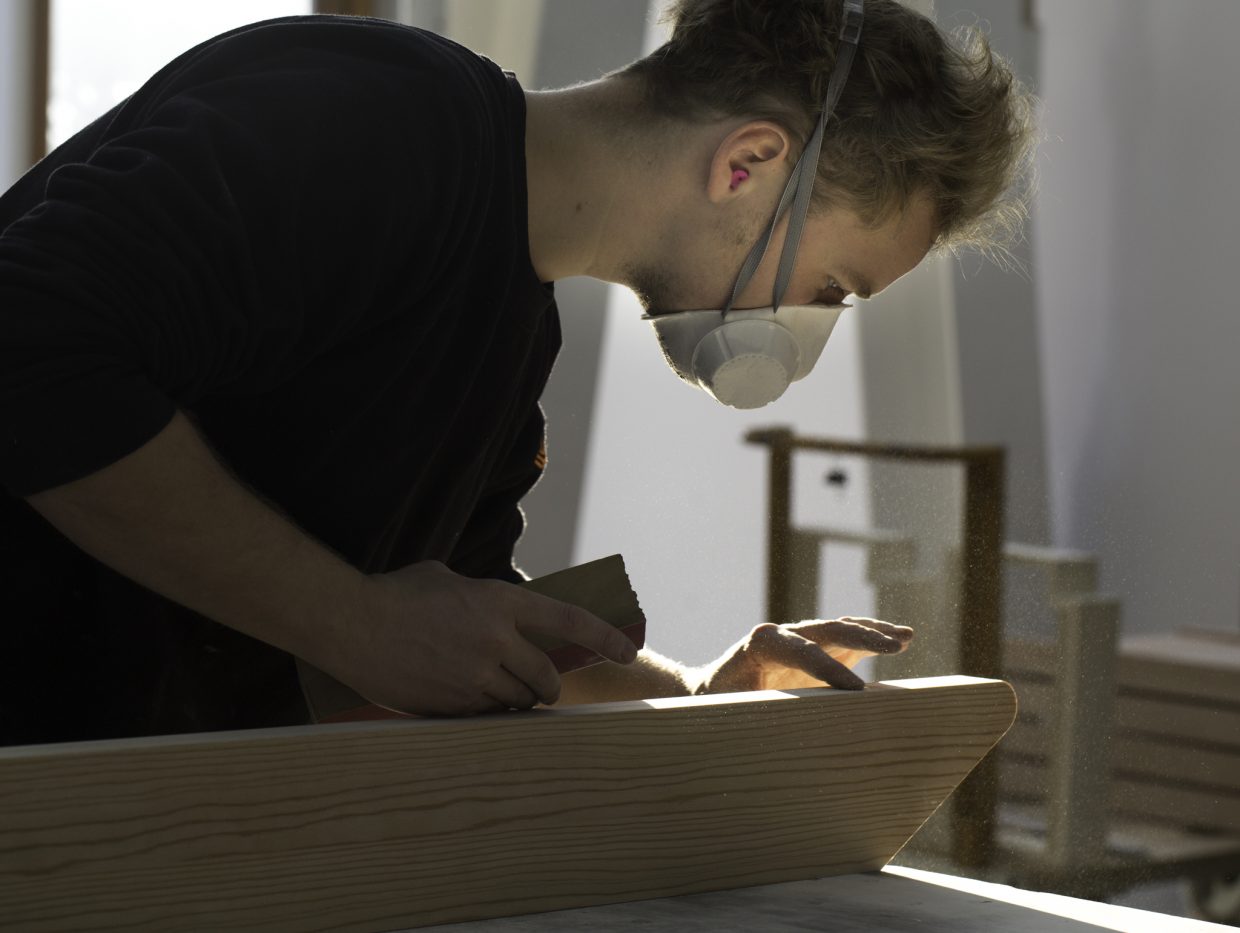
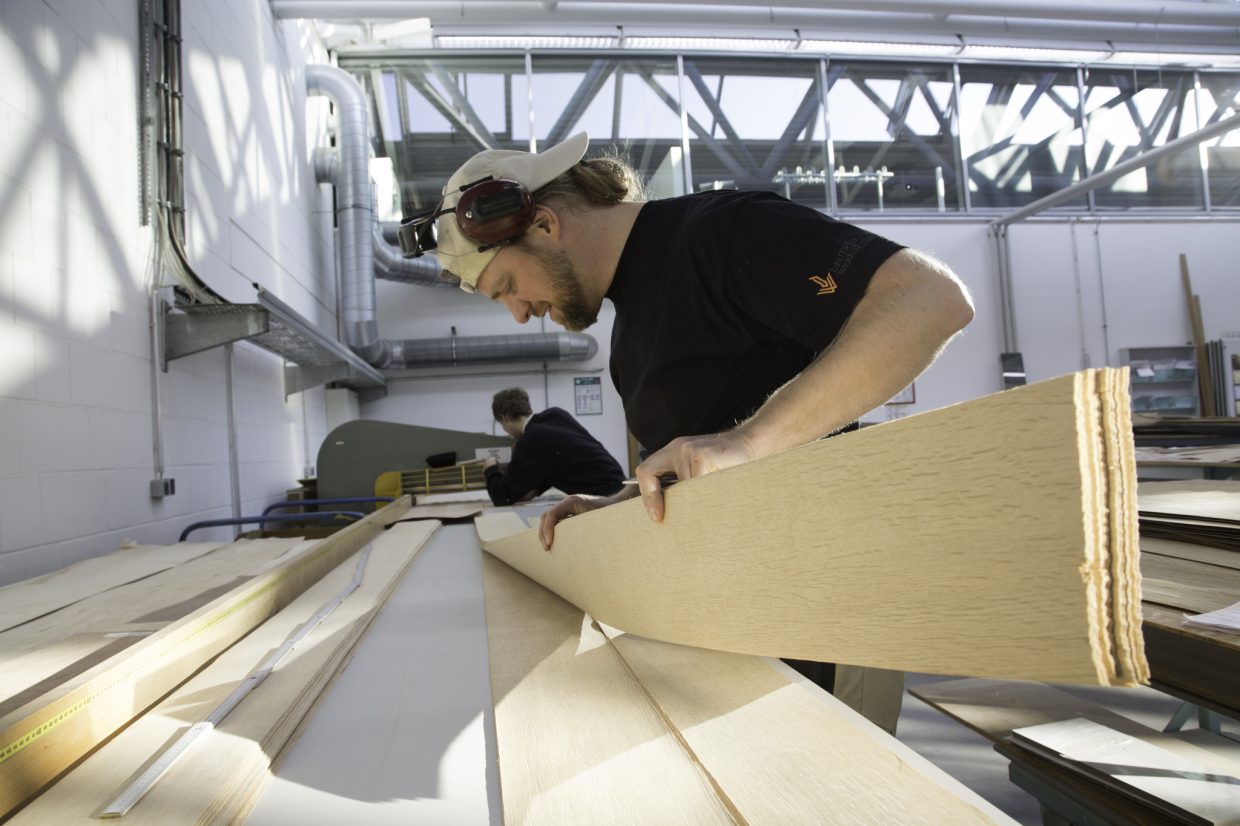
What about public contracts?
We started with public contracts. We see our craft as a social obligation and it is therefore important to us that we are also visible to the public. With regard to public clients, we naturally have the problem of having to take the cheapest bidder in public procurement law. Because of our working methods and structures, we are often out of the woods from the very beginning. In the end, you also need people in the public sector who feel responsible for a project and who want to create a special environment. For example, a librarian who does not want a sterile library architecture, but wants to create a contemplative place. Someone who says, “I know someone who can do that, let’s talk to them.” Saving is one side, dealing responsibly with projects and public funds is the other.
